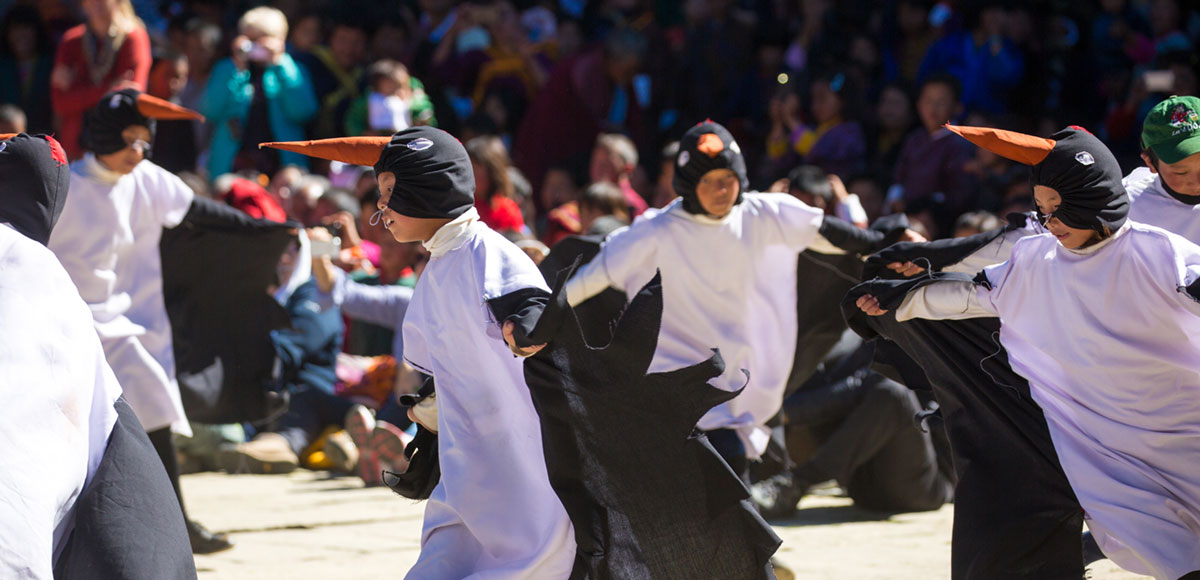Coexistence between Black-necked Cranes and Local Residents in Phobjikha

Bhutan
 Activity Reports
Activity Reports
 Overview
Overview
Located in central Bhutan, Phobjikha is a valley with an elevation of about 3,000 meters. The valley was designated as Ramsar site in 2016 and it is the largest wintering habitat of the Black-necked Crane in Bhutan. Black-necked Crane has been classified as vulnerable in the Red-List data of the International Union for Conservation of Nature (IUCN) and Bhutan receives more than 500 Cranes annually.
However, rapid growth of tourism in the area is bringing in changes that may negatively impact the natural landscape of Phobjikha. Agrochemical use in the farmland is intensive and the runoff flows directly into the wetlands. This, may negatively impact the integrity of the wetland ecosystem in the long run. Given the situation, degradation of the Crane habitat due to anthropogenic pressures has become a critical conservation concern.
As one of the strategies, to address the problems, the project will focus on awareness and education programs targeting a wide range of people. The activities will include development of new environmental educational materials and awareness tools (leaflets and videos), as well as capacity development of young project staff through the use of the materials.
 Schedule
Schedule
First year
- 1
- -Conducting research of current usage of wetland followed by sharing the result with local community
-Awareness surveys targeting schools and local residents
-Needs surveys for environmental educational materials and awareness tools
-Training young staff at local NGO
Second year
- 2
- -Developing environmental educational materials and awareness tools, collection of video footage
-Refining of draft educational materials and tools for schools and workshops for local residents
-Training young staff at local NGO
Third year
- 3
- -End line survey targeting schools and local residents
-Dissemination of educational materials at schools and workshops for local residents
-Training young staff at local NGO
 Goals
Goals
We aim to create an environment in which the local residents of Phobjikha and Black-necked Cranes can coexist in harmony. This will be done by developing and applying environmental educational materials and awareness tools, and by training young staff members through the project.


